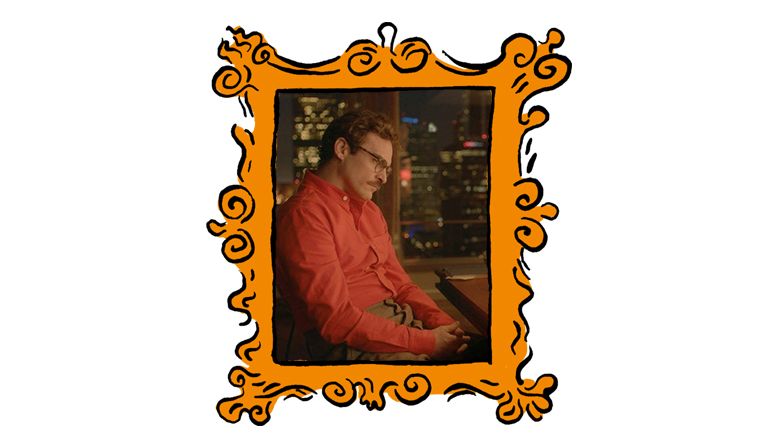For all their staggering works of genius and life-changing inventions, Silicon Valley bosses are often a bit guilty of missing nuance. You can see this in their approach to science-fiction films and books. Tech entrepreneurs will openly admit that they are attempting to recreate the gadgets depicted in these stories, despite the main message regularly being: this technology is not good for humanity.
Take “the metaverse”, for example, a term and idea that Mark Zuckerberg loved so much he changed the title of his company from Facebook to Meta. Yet the name originates from the 1992 novel Snow Crash, in which society has more or less collapsed and virtual reality is the only escape. Or how about Palantir, a data analysis company that has done work for the FBI, NSA and Britain’s NHS, but which takes its name from the crystal ball that Saruman (a baddie!) uses in The Lord of the Rings to see what’s happening in different parts of the world and to infiltrate the minds of others.
Now we have Sam Altman, chief executive of Open AI, the American start-up behind ChatGPT, who seems desperate to recreate the super-intelligent chatbot from the 2013 movie Her. As those who have seen the film will know, a key message it tries to convey is that technology is no substitute for interactions with real people and tends to only intensify feelings of alienation in the long run.
That must have passed Altman by, as it has now emerged that he twice asked the actress Scarlett Johansson to provide her voice for his company’s latest version of ChatGPT, which allows you to now talk to the AI-powered chatbot as though it’s a real human. The actress said no both times.
Johansson was the voice of the virtual assistant in Her. The character charms, flirts, falls in love with and then ultimately abandons a lonely and depressed man played by Joaquin Phoenix. Altman says Her is his favourite film about AI.
Despite Johansson’s refusal to get involved, when the product was launched, the voice of the chatbot—called Sky—sounded rather similar to the actress. Too similar, many people thought. Take a listen yourself. Here is Open AI’s version. And here is the voice of Johansson in Her.
Johansson was, quite rightly, furious, releasing a statement saying she was “shocked, angered and in disbelief” that the company had used a voice that “sounded so eerily similar to mine”. The actress says she has been “forced to hire legal counsel” about the matter.
OpenAI has said the voice of Sky “is not Scarlett Johansson’s, and it was never intended to resemble hers”. However, the company has pulled the product for now. Altman did not hugely help his case by posting a single word on X the day the new product was launched: “Her.”
This is all just the start. Advances in artificial intelligence are happening so quickly that even seasoned Silicon Valley analysts are struggling to keep up, let alone legislators trying to create laws around such technology. You cannot, as the law stands in the US today, copyright a voice. If Johansson takes OpenAI to court, lawyers believe her best case would be to argue the company tried to sell a product using her likeness.
It’s easy to feel quite depressed about all this. If even one of the most famous actresses in the world cannot have a say about how her voice is used, what hope for the rest of us when it comes to the growing advances of AI? Johansson has already given up trying to prevent grim deepfake videos of her appearing on the web—in which her head is superimposed on another woman’s body—describing it is a “useless pursuit, legally, mostly because the internet is a vast wormhole of darkness that eats itself”. Will the use of her voice go the same way?
It’s hard to know, and it’s likely celebrities will experiment with how best to handle these AI breakthroughs until a general consensus is reached. Carrie Fisher gave her blessing for her younger self to be recreated—aurally and visually—in Star Wars: Rogue One (2016), while her brother and daughter gave permission for her to be recreated entirely with AI tools and existing footage in The Rise of Skywalker (2019), after she had died three years before. Meanwhile, in September last year, Meta announced that celebrities including Snoop Dog, Tom Brady and Kendall Jenner would be providing their voices and likeness to virtual chatbots, which incorporate Facebook’s in-house AI technology and can talk to users on Instagram and Facebook.
Others have gone the opposite route and taken legal action, with OpenAI having already been sued for copyright violations by actors, authors and newspapers, who claim their material was used without permission to train the company’s chatbot.
In the meantime, however, we should applaud Johansson for objecting to the possibility that OpenAI ignored her wishes. Altman’s desperation to use Johansson shows just how much the human touch still counts. Our voices, creativity and stories will, it seems, always be more appealing than anything produced solely by AI—and we should protect that at all costs.
Thank Johansson for defending humanity
The tech titans are unwittingly hurrying towards dystopia. One actor, she gave her voice to the film ‘Her’, is doing what she can to stop them
May 23, 2024












